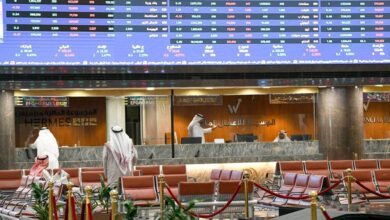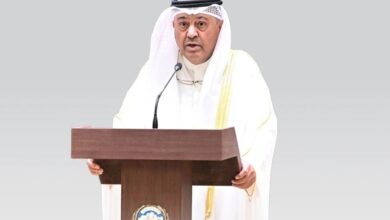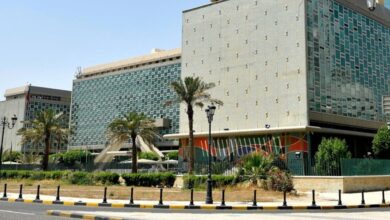Kuwait and Serbia share strong friendship and partnership
Serbia’s top priority is European integration

The Times Kuwait Report
In a recent interview with The Times Kuwait, Chargé d’Affaires at the Serbian Embassy, Filip Katic, spoke on the long standing relations with Kuwait while also emphasizing Serbia’s key international priorities, with a primary focus on European integration. He also spoke about the elaborate preparations taking place ahead of the global EXPO 2027, which is slated to take place in the Serbian capital Belgrade.
He began by highlighting that Serbia shares excellent relations with Kuwait, and that this year marks 61 years of diplomatic ties between the two countries.
The long standing friendly relations has seen many areas of cooperation, including in the construction sector, where companies from Belgrade have helped build many landmark buildings, including the iconic Kuwait Towers, the Ministries Complex, several military bases, and hospitals over the years. He added that Serbian companies have also more recently expressed interest in participating in the Kuwait Vision 2035 development plan.
On the volume of trade between the two countries, the envoy said that although bilateral trade between Serbia and Kuwait had improved in recent years, there is still a huge potential to increase trade in various sectors in the coming years. In particular, he pointed to the tourism sector, where the imminent reopening of direct flights between Kuwait and Belgrade could witness a dramatic increase in the number of tourists from Kuwait, as Serbia has so much to offer visitors.
The charge d’Affaires pointed out that the Serbian community numbering around 500 persons in Kuwait comprise doctors, engineers, professors and sports coaches.
On EU membership, he said it was a crucial step towards economic progress and regional stability, noting that Serbia is making significant strides to meet the necessary criteria. Economic development, foreign investment attraction, and infrastructure improvement continue to be top priorities for the Serbian government, which aims to secure long-term stability and prosperity for its citizens.
The chargé d’affaires stated that despite Serbia’s strong commitment to European integration and its focus on economic growth and stability, the ongoing issues in Kosovo and Metohija often slow down this process by diverting attention from the country’s key priorities. He emphasized that maintaining peace and stability in the region is of vital importance to Serbia. He also pointed out that resolving the Kosovo issue remains one of Serbia’s key national interests, with the country standing firm in its defense of territorial integrity and sovereignty.
Head of Serbian Embassy Katic highlighted that Belgrade insists on a return to the status quo in Kosovo and Metohija, followed by the resolution of the issue in accordance with United Nations Security Council Resolution 1244 and the Brussels Agreement. The violation of human rights in Kosovo and Metohija is causing significant political and social problems.
The Serbian diplomat further emphasized that his country seeks the consistent implementation of the Brussels Agreement, especially concerning the formation of the Association of Serb Municipalities, which is crucial for protecting the rights of the Serbian community.
He also addressed the challenges faced by Serbs in their daily lives, such as the closure of Serbian institutions, restricted access to public services and economic resources, and security threats due to unilateral actions by Pristina. Issues like the closure of Serbian institutions and the undermining of daily life for Serbs in northern Kosovo and Metohija remain central to Serbian diplomacy.
Simultaneously, the chargé d’affaires stressed that Serbia takes great pride in its efforts to enhance its economy and international cooperation. He noted that currently, a major focus of Serbia is on preparations for World EXPO 2027, which Belgrade will host in two years time.
This event represents a crucial opportunity for Serbia in terms of economic and cultural development, offering additional avenues to attract foreign investment and promote its potential on the global stage. The organization of EXPO 2027 is a significant source of pride for Serbia, aiming to showcase its progress and innovations to the world.
Charge d’Affaires Katić noted that his country hopes EXPO 2027 will become a symbol of the country’s economic and social advancement. It is expected to attract a large number of business and tourist delegations from around the world, further boosting the development of various economic sectors.
He revealed that several significant infrastructure projects are planned to enhance Belgrade’s capacity and service quality for EXPO 2027. One of the main projects is the construction of a national football stadium, expected to be completed by the end of 2026.
Additionally, an exhibition complex is being built, designed to host over 2.5 million visitors. Other planned developments include an aquatic center for water sports and a new railway and metro line connecting Zemun Polje and Nikola Tesla Airport.
Moreover, the modernization of Nikola Tesla Airport includes expanding terminals and constructing new parking facilities, which will significantly improve transportation infrastructure.
All these projects are set to be completed by the start of the exhibition, which will run from 15 May to 15 August 2027. It is anticipated that around seven million tourists and representatives from approximately 100 countries will visit Belgrade during EXPO 2027, further elevating the event’s importance. The expected revenue from tourism and business arrangements is estimated at around six billion euros.
Additionally, Serbia has achieved a BBB- credit rating, reflecting stability and positive prospects for future economic growth. This success is the result of responsible economic management, which has led to significant GDP growth, a reduction in public debt, and an increase in foreign currency reserves. Furthermore, the stability of the financial system and a steady inflow of foreign direct investment contribute to strengthening Serbia’s economic resilience to external shocks. These positive trends are expected to continue fostering economic growth in the coming years, supported by new investment projects and structural reforms.















